One
Yesterday in my mind I reburied Okike, my aunt, in a proper grave, in a coffin my memory grabbed from Aku Road, a beautiful white box edged with a blue stripe, a patterning of hibiscus with yellow blossoms embossed on its lid. Sometimes I sneak out to Aku Road to see the coffins sampled outside carpentry workshops, edging the fine arc of the road, in all their colours and shapes. The road is a piece of artwork that I walk with my eyes, rising where it rises, and curving where it curves. Even the Bishop Shanahan Hospital fence is artful in the way it curves then rises elegantly as if determined to hold those coffins back from strolling in and claiming their bodies waiting in the mortuary. I picture the coffin makers standing in their dusky workshops behind piles of their coffins with ambitious stares that call for patronage. Their bare bodies covered in fine powdery wood-dust and a sheen of muscle-gloss. But passers-by always look the other way. Always focused on the curve of the Bishop Shanahan fence opposite, fear and repulsion rimming their eyes, like the dark lines of kohl around my mother’s, as if by merely looking they are summoning death.
Okike’s actual grave, in a garden near our house, has been overtaken by weeds, half buried in wild growth, umbrellas of mushrooms and small climbing-grasses sprouting wildly over it. My mother tells me that today marks a decade since her death. I am going to weed the grave neat in commemoration of her passing, and, one day, I will make Okike a tomb. My mother says Okike lived with us when I was a child. She looked after me. She and I enjoyed a special bond, my mother says. “Ahutubeghi m,” she wonders at such closeness. “I have never seen a child that close to an aunt, even more than he is to the mother.”
Sometimes I close my eyes and imagine Okike bathing me, soaping me all over, oiling my scalp and patting my baby neck and tender back with talcum powder, folding me in diapers and tossing me up in her arms, a happy, smiling, fat thing. But did I wear diapers as a baby? I can’t seem to connect my small village of Oregwu, a remote, rural place in eastern Nigeria, with the townshipness of diapers, talcum powder, and coconut oil. Or this starved-looking boy that I see in the mirror to the round baby of my imagination.
Okike was my grandfather’s lastborn. My mother tells me she drowned in the Ezenwanyi cave on the eve of Palm Sunday. According to my mother, she was plucked out of the water and hastily buried without a proper funeral. Her grave lies unweeded. Time has blurred its edges. I want to build a tomb over her grave, a beautiful tomb, to thank her for caring so much for me. But that will have to wait until I can afford it.
I was four years old when Okike died, and eight years old when my father took me to the attama—the priest—of Ezenwanyi. He took me there in secret because my mother, a Catholic, forbids her children from going near Ezenwanyi’s shrine. My father might be the last proud worshipper of Ezenwanyi in our village. His face is probably the only one unfamiliar to the parish priest of the local church, Holy Trinity. But my father says the parishioners are hypocrites, not minding that my mother is one of those competing for the front pew during Sunday Mass. He says they bring nocturnal sacrifices to Ezenwanyi to seek his favours, and then they wear long scapulars to the morning Mass the next day to please the parish priest. “Pietists,” he sneers.
“You must not tell your mother that I brought you here,” my father whispered.
I nodded, excited to share a secret with him, a secret between men.
The attama is a tall, stooped elderly man who lives a few houses away from us. When he is not at the shrine he looks like any dried-up old man from our village, with a nose that dribbles snuff mixed with snot, who goes to work at his farm in the morning and spends the afternoon sitting on one of the huge old trunks in the village square. But he is a different man when he is seated at the shrine, distant and withdrawn, shrouded in dark mystery.
“My son here has been acting strange lately,” my father said from across the square floor of the little thatch hut where we sat on a short bench. “He has been unsettled in his sleep. I want to know the cause of his strange affinity with my late sister, his aunt Okike.”
The attama asked my father to get a stick, and to break the stick into the number of my father’s siblings, and then name the broken sticks after the siblings. This my father did in secret outside the shrine. When he returned, he handed the broken sticks over to the priest. Holding the sticks in his crooked palm, his nose unusually clean and dry, the attama spoke a few words of incantation and cast the broken sticks onto the earth floor. They fell in a line, the seven of them broken into uneven lengths. He touched the broken sticks one by one with a short staff, back and forth a few times. And then he stopped, picked up the one to his right and gave it to my father, who acknowledged that it was the very one he had named for my aunt Okike.
“She has reincarnation ties with your son,” the attama said. “In other words, she is your son’s ancestral benefactress. Their souls are tied together from the land of the spirits. Do not try to separate them or forcefully stop his predispositions towards her, no matter how strange they may seem. The connection between them is very strong, stronger than you can imagine, and that is why she comes to him in the dream, as a sign of that everlasting bond, a sign that she will be there for him if called upon in times of need or distress.”
It seems the attama was right. For as long as I can remember, I have often seen a young woman drowning in my dreams. In these dreams, I always see myself standing by a riverside. The woman approaches the river in a bright yellow dress with floral patterns. She bounds up onto the rocky track, hesitates at the riverbank, her shoulders quivering, her face glistening with tears, frozen white. And then she trembles and walks into the water. She walks on until the water reaches her shoulders, her chin, her nose, her eyes. Finally, it covers her.
Later, my father took my younger brother Machebe to the shrine of Ezenwanyi for his mood swings and aggression. The priest took one look at Machebe and revealed to my father that his second son was reincarnated from our forefather through the energetic village spirit Agubata. This is why Machebe is strong and hot-headed, and withstands me in a fight even now that I am fourteen years old, three years older than Machebe.
“The forefather he is reincarnated from was descended from the tiger spirit animal,” explained the attama. “When the totem appears to Machebe, the tiger’s passion and energy are released to your son the same way it happens to the masker.” He gave my father a knowing look. “You understand what I mean.”
My father nodded, but I was lost, and it wasn’t until much later, when I learned about my father’s masking prowess, that the cryptic message that passed between the two men unfurled to me.
“At least I am not reincarnated from a woman,” Machebe sneered.
We argued hotly. I did not like the jeering note in his voice that suggested that being reincarnated from Okike was a stigma. Machebe and I were like water and oil, and I knew that he would act even more arrogantly now that it had been revealed he was reincarnated from the tiger.
My father walked in then and shouted us down. Such matters were sacred, and must not be profaned, he said. “And you must not mention it to your mother. You know her views on Ezenwanyi.”
***
Buy The Liquid Eye of a Moon here: Amazon
Excerpt from THE LIQUID EYE OF A MOON published by Catapult Books. Copyright © 2024 by Uchenna Awoke.


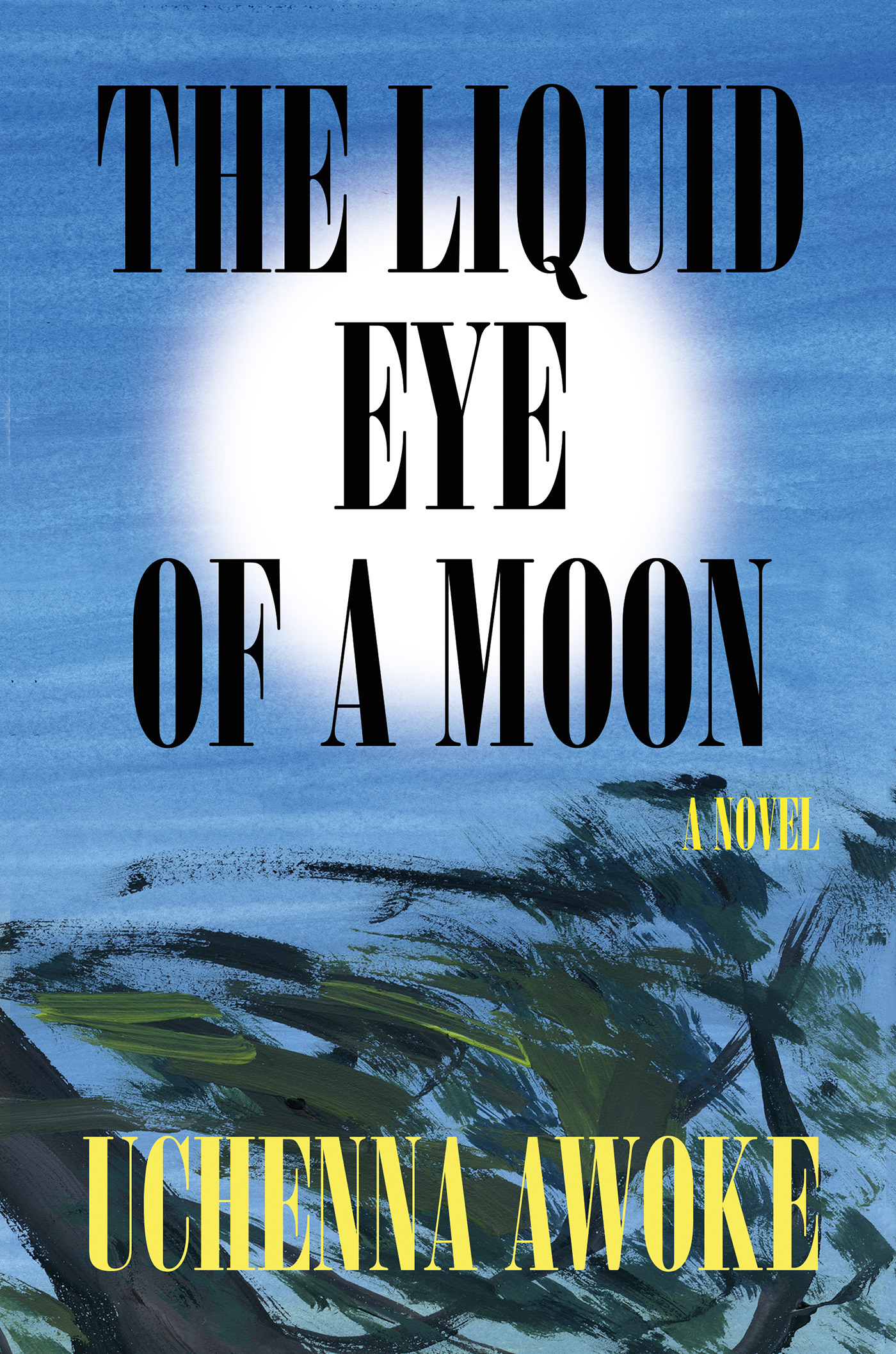
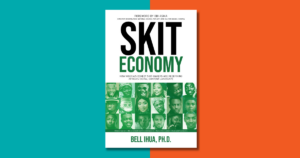
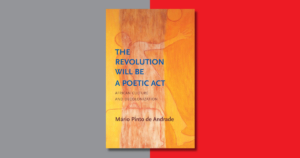
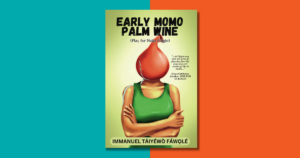
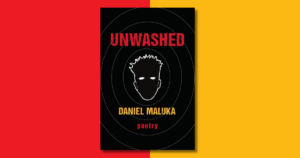
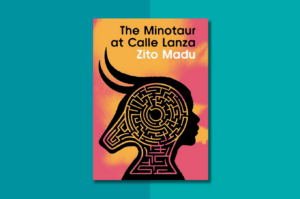
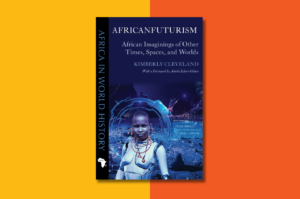

COMMENTS -
Reader Interactions